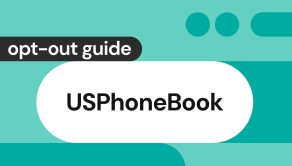Real stories: how identity theft can hurt your career
 Maria Shishkova
Digital Marketer & Privacy Expert at Onerep
Maria Shishkova
Digital Marketer & Privacy Expert at Onerep

This blog series features real stories from Onerep customers. They highlight just how damaging privacy violations can be along with the consequences and fallout for those affected. This post tells the story of an identity theft incident, a common yet under-spoken crime.
Identity theft happens when someone uses your personal information such as your name, date of birth, driver’s license, or Social Security number to commit a crime or fraud. It’s a serious problem in the United States and it doesn’t look like it’ll go away any time soon. Fortunately, many identity theft victims have started drawing attention to the issue by coming forward and sharing their stories. Not only can identity theft ruin things like your credit and finances, but it can destroy your reputation and endanger your career.
Sarah W. is a journalist from Milwaukee, WI. She’s also a valued Onerep customer. Here, she shares her struggles against identity thieves and the steps she took to protect her professional identity and reputation.
Sarah’s story
Almost two years ago my work email was hacked. I remember it was the middle of the night when I received a notification saying that I had been signed out of my Gmail account. Most of my projects are connected to that email along with my Google Drive where I store my written materials. Obviously, it was a disaster.
I went on Google trying to find tips on how to deal with an account takeover. All I found were some recommendations on how to secure a Gmail account. It was already too late for that. Half asleep, I tried to retrieve my password, but, both my password and recovery email address had already been changed. While I was trying to figure out what to do, I got another notification — this time from Instagram. I rushed to it. They had noticed suspicious activity. My password had been changed there too. After hours of live chatting, answering my security questions, and adding in my previous recovery email, I was able to restore my Gmail account. Once I regained access to my Gmail, I could access my Instagram too. I changed all of my passwords and required 2-step verification on all of my accounts. I was certain I had taken care of the problem.
Unfortunately, the time it took me to recover my email was just enough for hackers to steal a few pictures from my private Instagram account. No sooner had I fixed one problem, I learned that they created a fake identity on LinkedIn. They used my name and photos stolen from Instagram, added a couple of links to my published articles, and posted extracts of information from my CV – like my education, skills, and experience. It looked so real. Luckily, LinkedIn removed this fake account after a couple of my friends and I reported it. However, I was terrified and unsure of what would come next.
This incident made me question everything I knew about privacy. I hadn’t done anything out of the ordinary, yet it was so easy to fall victim to identity theft. Even if your accounts are private and no consent is given, there are people who can find their way into your private information. I started thinking about what I could do to protect myself. For me, it was more than just an email and social media account takeover. My whole career was on the line.
I hadn’t done anything out of the ordinary, yet it was so easy to fall victim to identity theft.
Having a job that requires extensive internet use and a wide social network, it’s essential that my personal information stays private. With a lack of guarantee of personal information security, prevention seemed to be my best option. I looked into ways that I could protect my publicly accessible information and decided to rely on Onerep. Their services didn’t let me down. Ever since I started using it, the amount of my personal information available on the web has gone down significantly.
Taking a proactive approach to online privacy protection
If you’re concerned that someone can take advantage of your private information, act now. Onerep is offering a 5-day trial to help you identify the people-search sites that expose your personal information online, and initiate automatic removal.
 Maria Shishkova
Digital Marketer & Privacy Expert at Onerep
Maria Shishkova
Digital Marketer & Privacy Expert at Onerep



